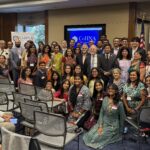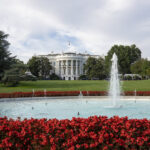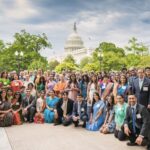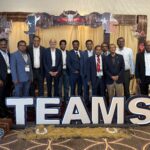Hindu YUVA USA recently hosted noted scholar, author, and director of the International Centre for Sustainability (UK), Sachin Nandha, for a multi-campus U.S. lecture tour centered on his new book, “Hedgewar: A Definitive Biography.”
The series of discussions invited students across American universities to engage with Nandha’s research on K.B. Hedgewar’s role in India’s cultural renewal and rebuilding of social capital in the years following independence. According to a statement from Hindu YUVA, that period continues to resonate deeply with Hindus worldwide, shaping their evolving sense of identity and belonging.
The tour also reflected broader intellectual debates about how colonial frameworks have influenced self-perception among post-colonial societies, particularly within the Hindu community. “This self-inspection asks a simple question: how does any community recover clarity after generations of thinking in someone else’s terms?” the statement said. “Awakening Hindu consciousness, in this context, means learning to read one’s own tradition without inherited distortions.”
Across campuses, Nandha’s lectures drew diverse audiences and sparked rigorous discussion on themes of history, identity, and civic engagement. He emphasized that Hedgewar founded the Rashtriya Swayamsevak Sangh (RSS) as an apolitical initiative to bridge religious, caste, gender, and class divisions created under colonial rule. His account of Hedgewar’s life, observers noted, avoided both idealization and blanket criticism, presenting a balanced view that encouraged reflection and dialogue.
Hindu YUVA underscored that its programs aim to foster critical thinking and mutual respect through open discourse.
“Our events aim to foster mutual respect by inviting students from every background to ask difficult questions and engage in thoughtful discussion,” the organization said. “Disagreement is not a problem to avoid, but a condition of learning. When a campus is willing to hear from minority perspectives, everyone gains a clearer view of the world they inhabit. We will continue to offer a setting where conversation is respectful, curiosity is encouraged, and inquiry is open.”






